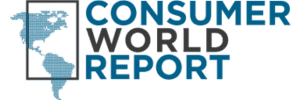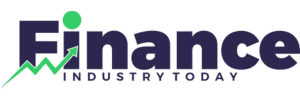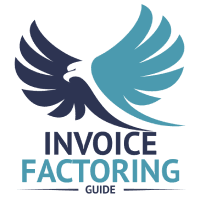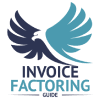Frequently Asked Questions About Invoice Factoring
What Is Invoice Factoring?
Also known as accounts receivable factoring, invoice factoring allows companies to increase working capital by selling their unpaid customer invoices (accounts receivable) to a factoring company at a discounted rate. They’ll pay you a significant portion of the invoice value and handle collecting payments from your clients. This means you’ll have instant access to working capital to settle supplier bills, cover payroll, expand your business, and manage other expenses – all without piling up debt. Once your clients have paid their invoices, you’ll receive the remaining balance minus a modest factoring fee.
Who Uses Factoring?
Almost any business offering goods or services to other companies might qualify for invoice factoring. That’s because, unlike traditional loans, approval for factoring is largely based on their customers’ creditworthiness rather than their own credit scores. So even if your credit history is short or poor, it won’t necessarily disqualify you as long as your clients have a strong payment history. Factoring is most often provided to B2B businesses due to the size and volume of their invoices. However, B2C businesses can still qualify as well.
The relaxed approval requirements make factoring one of the most widely available financing solutions today. Small businesses, midsize firms, startups, and large corporations across various industries use factoring daily. Some of the most prevalent industries that rely on factoring include transportation, staffing, manufacturing, government contracting, and oilfield services.
How Can Factoring Help Your Business?
Factoring can benefit businesses in several ways, but the primary advantage is that companies are paid immediately for completed work or delivered goods instead of waiting weeks or even months for clients to settle their bills. As a result, invoice factoring is an excellent way to stabilize your cash flow. Plus, factoring companies typically won’t dictate how you can spend that money, so you’re free to cover payroll, recruit new employees, pay fixed expenses, save, or invest in your business’s growth.
How Is Factoring Different From a Bank Loan?
Factoring is a convenient alternative to traditional financing options like bank loans or lines of credit. Several features and benefits distinguish this financing solution.
How Does Factoring Affect Your Customers?
When you decide to factor your invoices, the factoring company will send a Notice of Assignment to your clients, informing them that they’re assuming ownership of the invoices. Many clients may already be familiar with invoice factoring, so they’ll already know the basics. Their original service contract remains with you. The only change is where they send their payments. Trustworthy factoring companies employ well-trained and polite collections professionals who treat your customers with the same courtesy and respect they give to their own clients, safeguarding your customer relationships. Plus, they often offer modern payment solutions that make it easier for customers to view and pay their balances, so the upgrade is usually well-received.
What is the Difference Between Recourse and Non-Recourse Factoring?
You may have the option to choose between recourse and non-recourse factoring. With recourse factoring, you assume the risk of unpaid invoices. With non-recourse factoring, the factoring company assumes the risk. Non-recourse factoring can protect your business, but it costs a bit more. Equally, most factoring companies run credit checks on your clients, so the risk of non-payment is already quite low. Recourse factoring tends to be more popular for this reason.
How Much Does Invoice Factoring Cost?
Understanding the rates and fees associated with factoring is crucial for determining if it’s the right solution for your business. Generally, factoring fees are based on a percentage of the total invoice amount. The percentage can vary depending on several factors, including the size of the invoice, the creditworthiness of your customers, and your industry. Usually, factoring fees will be between one and five percent, but the exact fee will differ from one company to another.
There are two main types of factoring fees: flat and tiered fees. Flat fees are a fixed percentage that are applied to the invoice amount, while tiered fees are based on how long it takes for your customers to pay the invoices.
In addition to the factoring fee, some factoring companies may have application, due diligence, and wire transfer fees. It’s essential to review your factoring agreement and ask questions to ensure you fully understand all the fees involved before entering into a factoring relationship.
Where Can I Learn More About Invoice Factoring?
If you have additional questions, please visit our comprehensive invoice factoring guide or request a complimentary factoring rate quote.
Factoring Companies Chosen By Business Owners
“I had a great experience from the onboarding to the factoring.”
“Awesomeness personified. This company saved our business. Instead of having to wait around 2 months for our payments we get them within days.”
“Our transition has been very smooth and easy.”
“I was completely impressed with their professionalism and customer service.”
“The people there really care about you and I’m very happy with the service I’ve gotten.”
“They give me the fast cash I need and the team there is great. My rep always takes the time to help me out.”
Get an instant funding estimate
Results are estimates based on the calculated rate and the total invoice amount provided.
Actual rates may vary.
Request a Factoring Rate Quote
PREFER TO TALK? Call us at 1-844-887-0300
A Network Featured by the Media






Partners Affiliated with Industry Leaders





